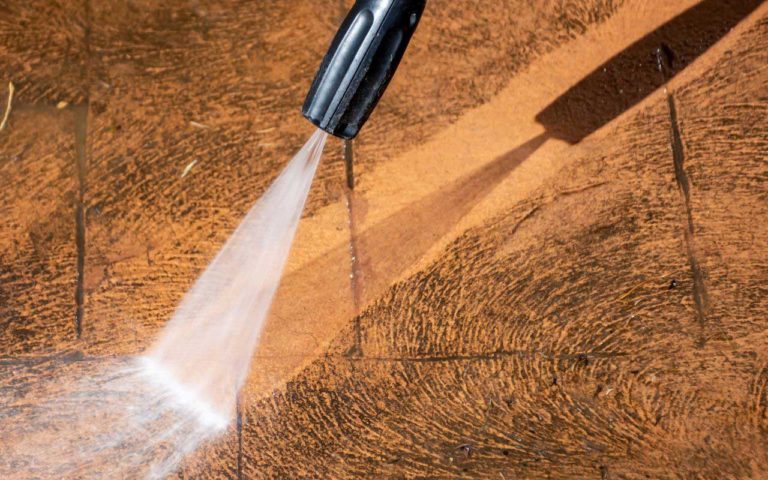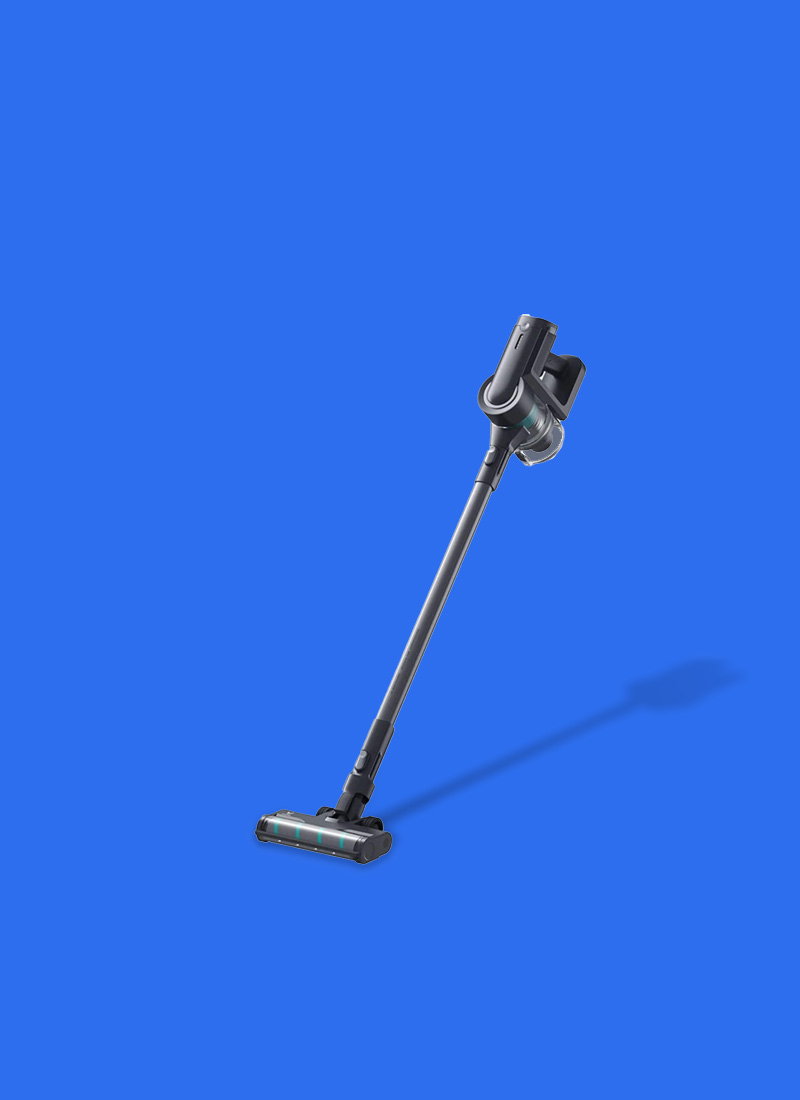ⓘ We are reader-supported and may earn a small commission at no additional cost to you if a purchase is made through one of our links.
If you think that pressure washing and power washing are the same, think again. While both use strong streams of water to remove dirt, dust, mud, grime, and stains on surfaces, there is one distinct difference between the two – heat. Yes, you read that right, the main difference between a power washer and a pressure washer is the use of hot water.
One of these cleaning devices has a heating element that heats up the water that passes through it while the other doesn’t. While both can be used the same way and produce approximately the same PSI of water for cleaning, there are some distinct advantages (and disadvantages) to using one instead of the other.
Want to find out more? Then read on.
Pressure Washer vs. Power Washer
So, which of these two cleaning devices uses hot water and which one doesn’t? As it turns out, power washers use heated water while pressure washers don’t. Now, if you got a pressure washer instead of a power washer, there’s nothing to worry about. Both cleaning devices have the same high-pressure streams that can dislodge stubborn dirt and grime on a variety of surfaces.
Of course, while both can clean areas around your property adequately enough, there are some advantages and disadvantages to using one or the other. Let’s dig deeper into these pros and cons to give you an idea of what we’re getting at.
Pros and Cons of Power Washers
Let’s begin with the device that uses hot water, which is the power washer.
What makes a power washer a great tool to have? Here are some of the reasons:
Effective at removing stubborn messes – Since these washers use heated water, certain messes are easier to take care of with power washers. Mould, mildew, grease, and grime are just some examples of the things you can easily handle with power washing.
Can kill contaminants – Power washers are also great when you want to eliminate contaminants without having to use chemicals or detergents. Cleaning out sticky messes and hazardous waste from pathways and concrete is more effective with a power washer since it can kill bacteria and remove them more easily with the added heat.
Great at eliminating moss and weeds – Another advantage of using heated water when cleaning up areas outside your home is the power it has to kill moss and weeds. The heated water kills these pesky growths and stops them from growing back.
Now, for the disadvantages that come with power washers, here are some of them:
Expensive – Yes, you read that right. Power washers can cost you quite a bit, with some costing thousands of dollars.
More likely to damage surfaces – Since there is heat involved, a power washer can cause some damage to the surfaces that you clean. The added heat makes certain materials more prone to warping and tears. Examples of these include vinyl flooring and wood.
Pros and Cons of Pressure Washers
Now, let’s talk about pressure washers. These are washing tools that depend on water pressure to get things clean and don’t have the added heat that power washers have.
Why should you choose pressure washers for your outdoor cleaning needs? Here are some reasons to mull over:
Great for household use – If you’re planning on using your washer for home cleaning jobs, a pressure washer is your best bet. Since it doesn’t have the added element of heat, you can safely clean areas like vinyl-covered garage floors, wooden patios, and the like. It can also effectively clean your driveway, pathways, and the sides of your house.
Lots of options to choose from – One thing to take note of is the PSI of the power washers that are in the market today. You’ll find that there are a lot of different options for you to choose from. These range from a low of 1,000 to a high of 3,000+. If you check out this list of pressure washers, you’ll find that these products cover such a range of PSIs.
Versatile and safer to use – The versatility of pressure cleaners is one of its best features. You can use it to clean cars, remove gunk from concrete, clean decks, and many more. Just make sure that you’re also using the right nozzle for whatever cleaning job you’re using your pressure washer for. This is to ensure that whatever you’re using it on is safe from accidental damage.
And what are the disadvantages that come with pressure washers?
Not as effective at removing stubborn dirt – If you want to clean off greasy or sticky messes without using detergent, a pressure washer may not work too well. Sticky gum, spilled oil, and other similar messes may require additional tools (palette knife or scrubbers) and some soap to remove them.
Can still cause some damage – If you buy a pressure washer with a high PSI, you will still need to exercise some caution when using them. These cleaning tools can still chip off concrete, damage wood panels, and tear vinyl, if you’re not aware of the power they have. They can also cause injuries if you’re not careful.
Washer Terms to Look Out For
When buying a pressure washer (or a power washer, for that matter), there are a few terms you need to be somewhat familiar with. Knowing what these terms mean can help you make a better purchasing decision and to better handle the washer you’re planning on buying. Here are some of those terms:
PSI – This is a term that you will encounter time and again when you are looking at power washers and pressure washers. PSI is short for Pounds per Square Inch, and this indicates the amount of pressure put out by the device.
LPM or GPM – This is another acronym that’s used when it comes to washers. LPM is short for Litres Per Minute while GPM is short for Gallons Per Minute. Why is this important? Well, the pressure of the washer may loosen the dirt that’s stuck to your concrete, it’s the amount of water (LPM/GPM) that ultimately removes it and washes it away.
Nozzle – This is the device that you use at the forward end of the pressure washer’s or power washer’s wand. Most washers come with a variety of nozzles, enabling you to clean different surfaces and to do various cleaning tasks.
Conclusion
Now that you know what the difference is between power washers and pressure washers, you can easily surmise before you make any purchase which one you truly need.
If you’re thinking of heavy-duty cleaning that may include the constant removal of greasy, sticky, and contaminated gunk, then a power washer is your best option. However, if what you need is something that can help you remove dirt, dust, and mud, plus can be used to wash your car occasionally, a pressure washer is what you should get.



